Will the Next ‘Black Panther’ Be a Latino Superhero?
Latinos are not well represented in Marvel movies. El Peso Hero wants to change that.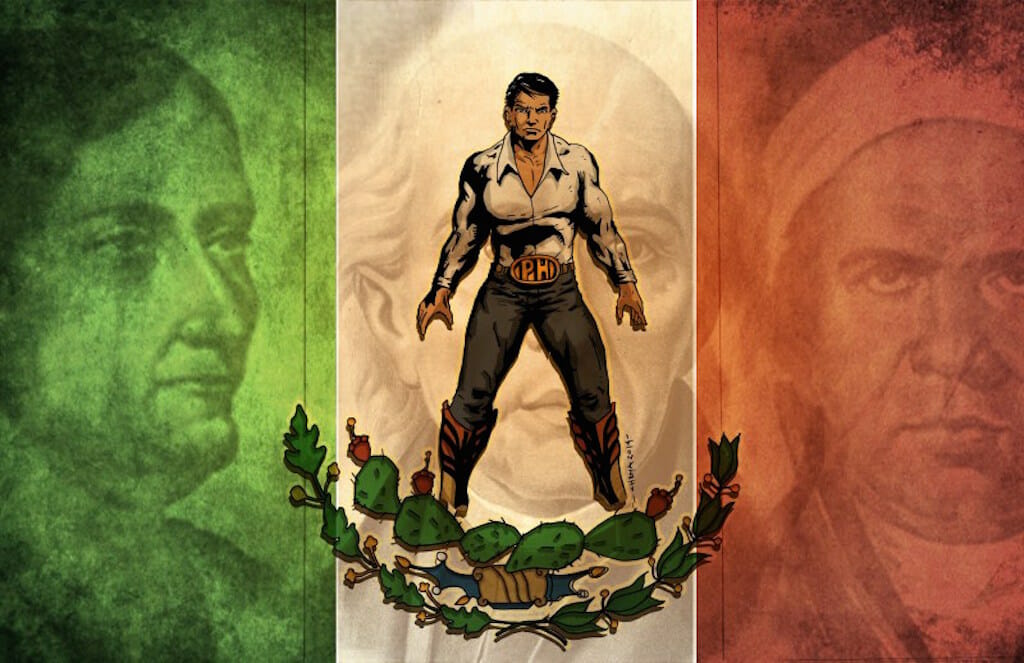 El Peso Hero. (Rio Bravo Comics)
El Peso Hero. (Rio Bravo Comics)
“Black Panther” has introduced a new generation to a black superhero, but when Latinos watch a Marvel movie, they see they are not well represented. El Peso Hero wants to change that.
Created by Hector Rodriguez, “El Peso Hero” is a comic book series influenced by the modern-day challenges people on both sides of the United States-Mexico border face. The main story centers on El Peso Hero, a contemporary Mexican who speaks only Spanish and stands up against Mexico’s cartels, human traffickers and corrupt officials. The rogue hero defends the rights of immigrants and the disenfranchised, and fights all forms of injustice.
“El Peso Hero” is gaining recognition by providing a superhero who is relatable and relevant to Latino culture. With the origins of El Peso Hero rooted in Mexican history, Rio Bravo Comics, the comic’s independent publisher (also founded by Rodriguez), wants to bridge the representation gap in media.
“Latinos are not adequately represented in local, state and federal government. They are even less represented in comics, books, music, TV shows and movies,” Rodriguez told Truthdig. “Latinos make up 25 percent of moviegoers, even though they’re only 18 percent of the population.”
The demographics are changing. In numbers, Latinos passed whites in California a few years ago, and today they total 15 million. Next are Texas (11 million) and Florida (5 million). Those three states make up over 55 percent of the Latino population in America, which is 55 million, or 17 percent of the country. By 2050, the United States is projected to be majority minority. And by 2060, Latinos are expected to make up over 28 percent of the total U.S. population, or 119 million people.
“This rapid population growth presents a unique set of opportunities and challenges that policymakers are in a position to address,” noted Rodriguez.
Representation matters.
Representation dispels stereotypes (like the myth that many Mexicans coming to the U.S. are “criminals, rapists and drug dealers”).
Representation humanizes people and affects how people are perceived and valued.
“There’s this body of research and a term known as ‘symbolic annihilation,’ which is the idea that if you don’t see people like you in the media you consume, you must somehow be unimportant,” Nicole Martins of Indiana University explained in a 2017 Huffington Post report on why representation matters. Researchers George Gerbner and Larry Gross created the phrase in 1976 in a seminal paper, “Living with Television”: “Representation in the fictional world signifies social existence; absence means symbolic annihilation.”
Last but not least, representation pays. “Black Panther” is the highest-grossing Marvel film in domestic box-office history, at $631 million and counting, even if some people believe it’s enemy propaganda.
Could the next “Black Panther” be a Latino superhero?
Yes. But racial change takes time. Remember the words of Frederick Douglass from 1857: “If there is no struggle, there is no progress. … This struggle may be a moral one, or it may be a physical one, and it may be both moral and physical, but it must be a struggle. Power concedes nothing without a demand. It never did and it never will.”
Latinos are still seeking their moment. At some point, superheroes can no longer be ignored.
For now, the focus for El Peso Hero is on the recently released origin prologue for the upcoming book, “El Peso Hero: La Patrona”:
Mexico has known many heroes through her long and eventful history. Perhaps none have captured the imagination and stirred the hearts to the degree that Los Niños Héroes (Heroic Children) have. In 1847, six brave young cadets fought valiantly for their country during the Mexican-American War at the Battle of Chapultepec. Tragically, they died defending her honor.
We also honor the story of adelita Petra Herrera. Petra spear headed the siege of Torreon during the Mexican Revolution in 1913. This battle was crucial in allocating resources for Pancho Villa’s army. Unfortunately Petra la Soldadera was never given credit for her pivotal role. Portraying their stories has never been done in comic book form.
Viva El Peso Hero.


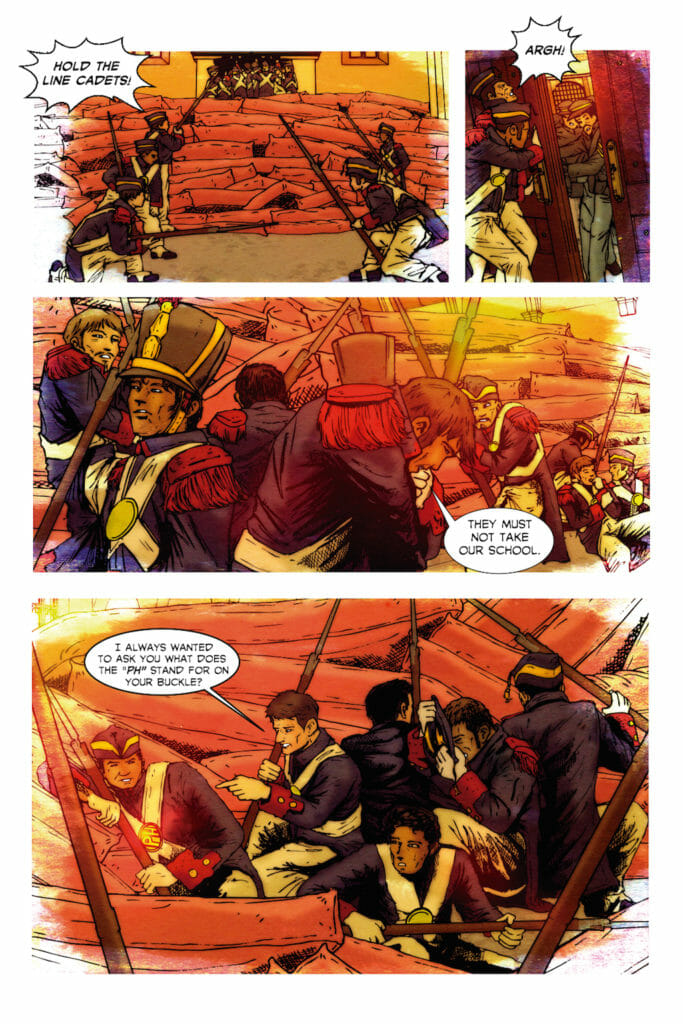
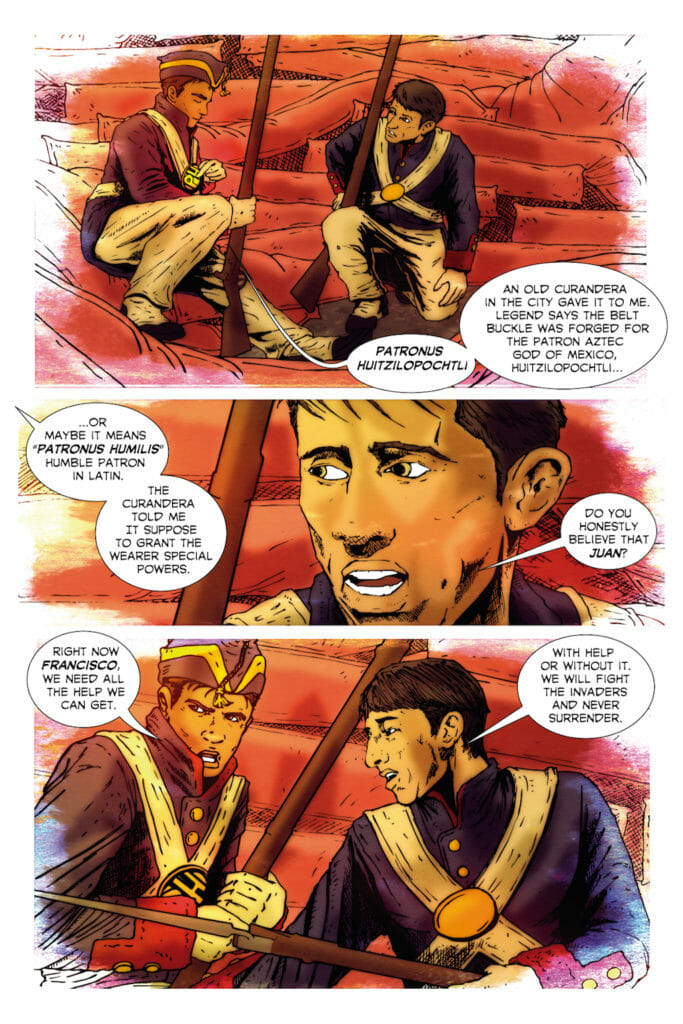
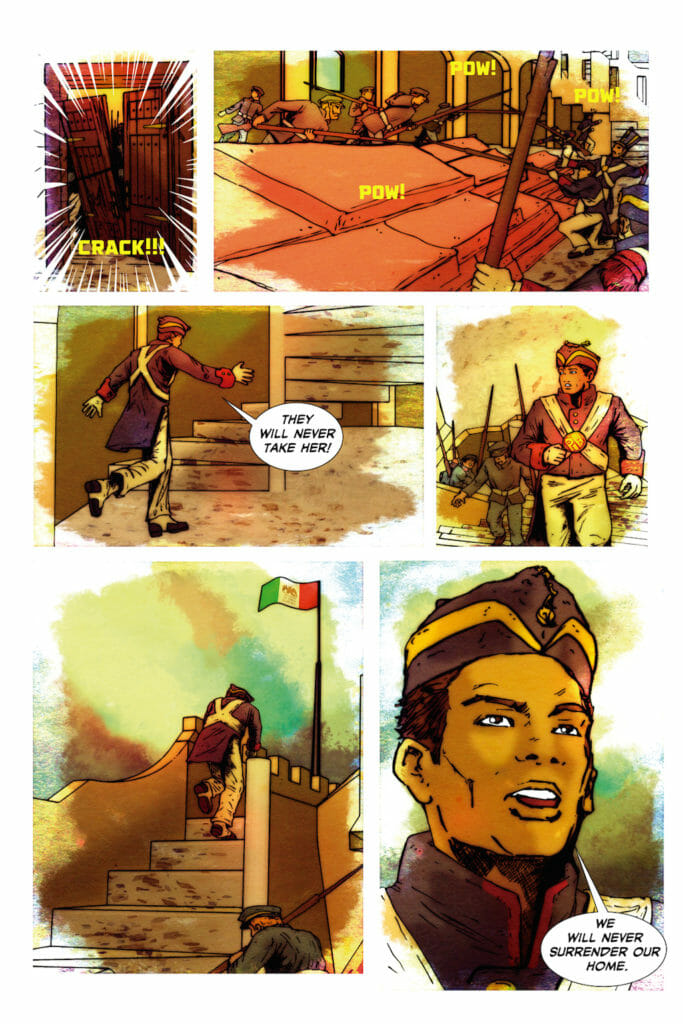
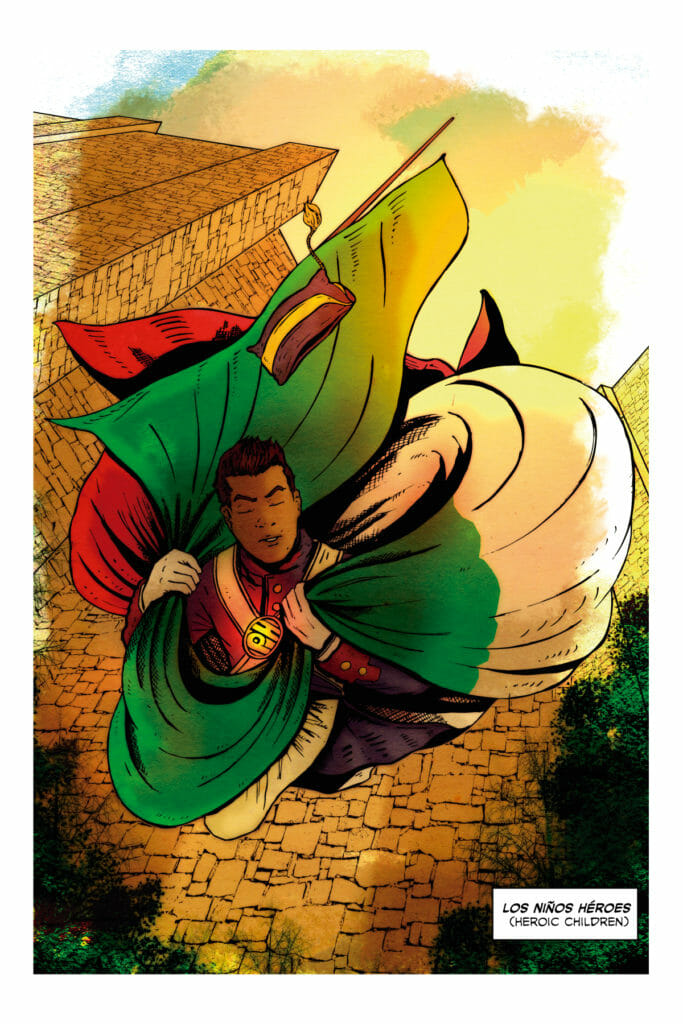
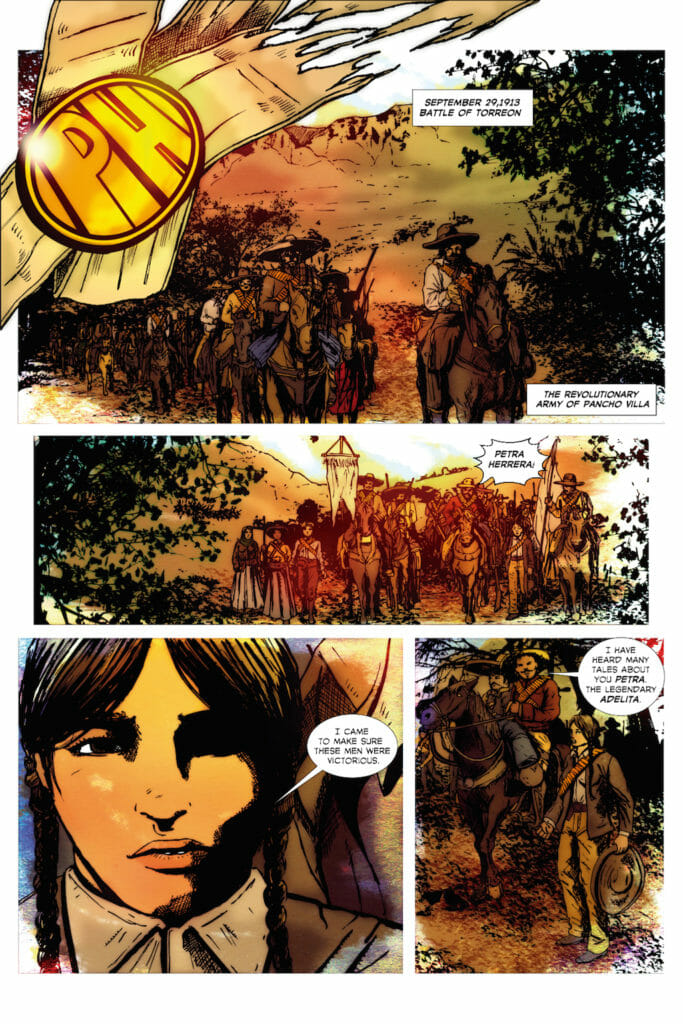
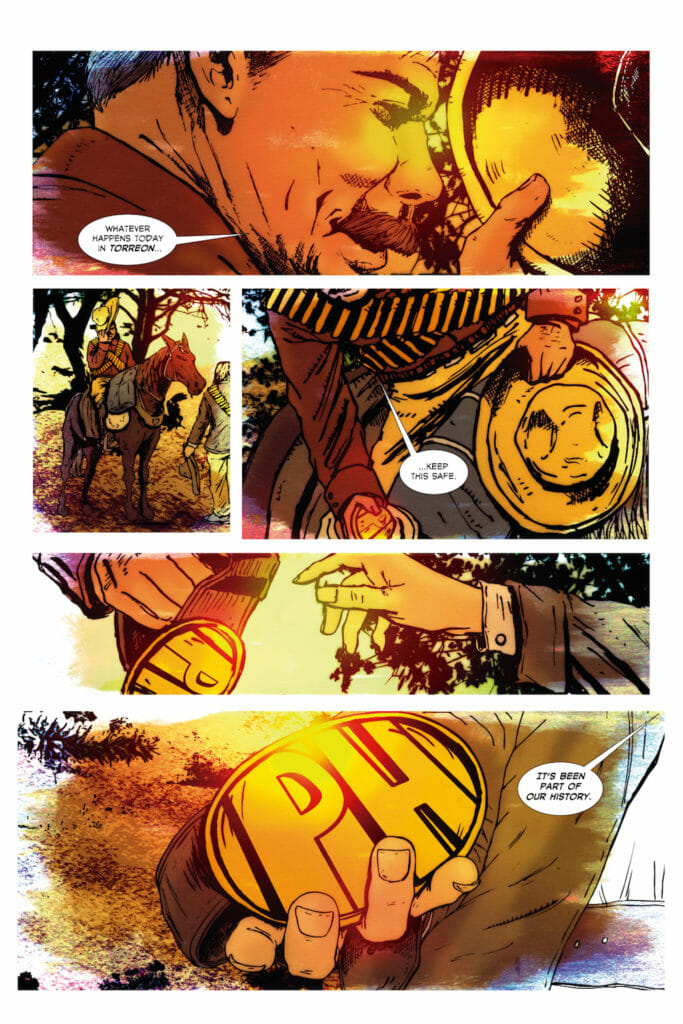

Independent journalism is under threat and overshadowed by heavily funded mainstream media.
You can help level the playing field. Become a member.
Your tax-deductible contribution keeps us digging beneath the headlines to give you thought-provoking, investigative reporting and analysis that unearths what's really happening- without compromise.
Give today to support our courageous, independent journalists.


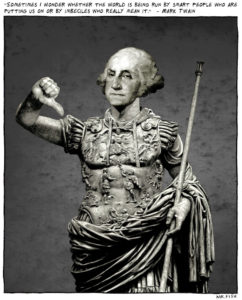


You need to be a supporter to comment.
There are currently no responses to this article.
Be the first to respond.